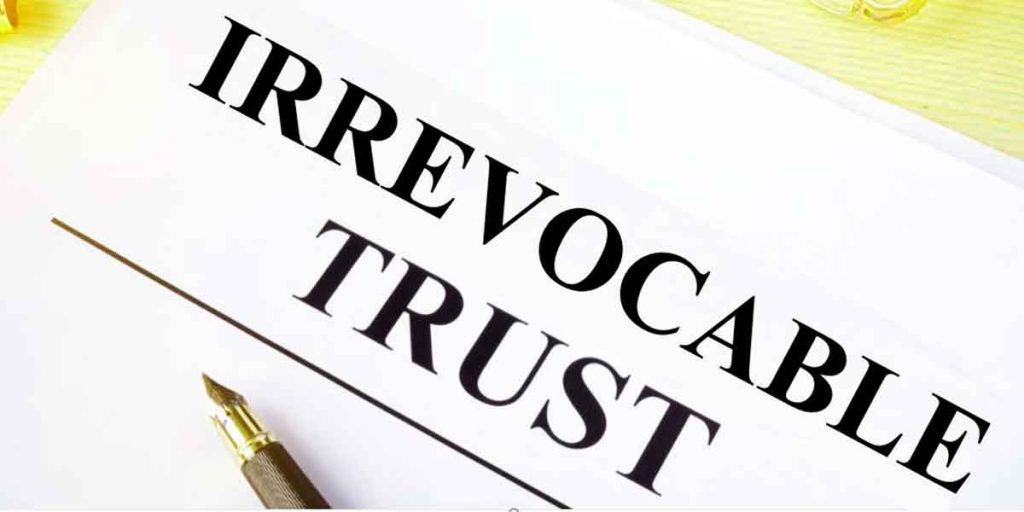Nursing home costs are very high, and that is why people look to Medicaid to foot the bills. The average cost of a private room can reach up to $7,000 monthly. Even when you are wealthy, it is painful to watch your hard-earned money going down for your health care costs, money that should be better off in the hands of your loved ones. Typically, only people with limited assets and income are eligible for Medicaid because they are deemed incapable of affording the costs of basic care.
In New York, you must have below $15,900 as total assets and earn not more than $884 monthly to qualify for Medicaid.
So how do others who earn more avoid having their assets getting drained for their long-term care?
It’s no wonder many people resort to using different strategies to minimize their assets so that they can become eligible for Medicaid. Some accomplish this by spending their money on home renovations, making gifts to loved ones, or funding their assets into an irrevocable trust.
Irrevocable trusts and Medicaid eligibility
Yes. Irrevocable trusts can be used to protect assets when applying for Medicaid. Even though you have millions of dollars, you can become eligible for Medicaid by placing them in an irrevocable trust. To understand how it works, let us first understand some concepts.
Countable assets
Countable assets are assets that are counted for the purpose of Medicaid eligibility. They include:
- Bank accounts
- Automobiles
- Life insurance policy with cash value over $2,5000.
- Real property
- Stocks and bonds
- Certificates of deposit
- Gifts made within 5 years of Medicaid application
Non-countable assets
- The following assets will not be counted:
- Retirement accounts
- Home renovations
- Life insurance with a cash value of less than $2,500
- Real property (so long you do not receive rent payment from it)
- Personal property, including furniture
- Prepaid funeral expenses
- Assets funded into an irrevocable trust 5 years before Medicaid application.
The Medicaid Look Back Period
The social agencies will look at your financial history for the last 5 years to determine whether you qualify for Medicaid. You will be penalized if they see that you have given out your assets without receiving their fair market value. That’s because it feels as if you are giving off your property and then posing as if you don’t have enough to pay for your health care. The penalty is a time frame in which you would be ineligible for Medicaid benefits. It is known as the look-back penalty period.
The look back penalty period in New York
The look-back penalty period is the length of time during which you are denied Medicaid benefits as punishment for having gifted out assets during the 5-year look-back period.
The look-back penalty period in New York varies according to the value of assets gifted. It is calculated by dividing the value of the gifted assets by the New York Monthly penalty divisor, which is $13,834 in 2021. So if you have gifted $27,700 during the 5-year look-back period, your penalty period will be 2 months, i.e. $27,700÷$13,834 = 2.
Note that the two months are counted from the time you made the gift and not when you applied for Medicaid.
Irrevocable trusts and the look-back period
Any asset you retitle into an irrevocable trust is seen as a gift. So when you do the retitling within 5 years before applying for Medicaid, you will be hit by the look back penalty period.
This is why you must execute your irrevocable trust for at least 5 years before applying for Medicine. This is the only way irrevocable trusts can help you protect your assets when applying for Medicaid.
Irrevocable trust protects assets from Medicaid asset recovery, probate, creditors, and tax
Assets in your irrevocable trust are no longer counted as part of your estate because the trust is now the sole owner. So even when you have millions in it, they cannot be reached by nursing home costs, taxation, liens, or creditors.
Although you can no longer use the assets for your benefit, you must name beneficiaries who the assets will go when you pass away.
Your beneficiaries will inherit these assets easily and quickly without any probate, tax, or Medicaid asset recovery.
Final words
Irrevocable trusts are highly complex and should be executed with expert guidance. Our New York estate planning attorneys are ready to assist you. Give us a call.









